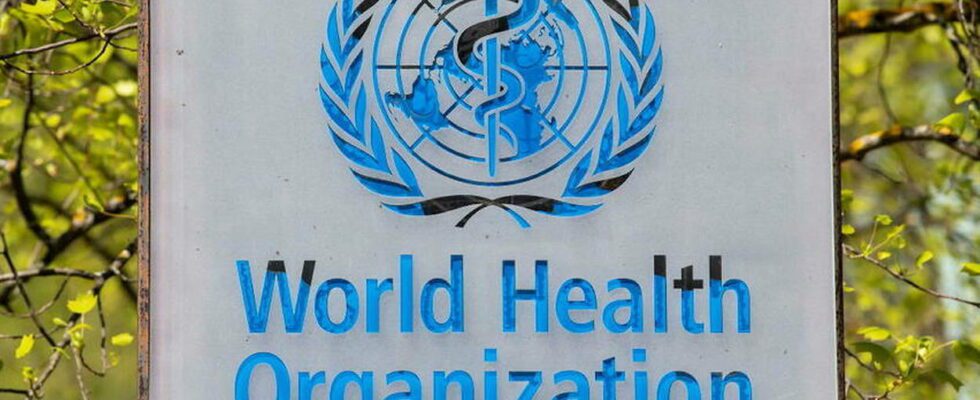The World Health Organization reassures about the future of the coronavirus pandemic and is now trying to find out its origin.
By NB with AFP
© MARTIAL TREZZINI / EPA/KEYSTONE / EFE
Published on
Subscriber-only audio playback
Ie Covid-19 will soon be no more dangerous than the seasonal flu, assured the World Health Organization on Friday, which hopes to lower its maximum alert level again this year. The WHO has also again asked Beijing to be more transparent in terms of sharing data on Covid. These accusations come after international experts discovered that China had published online – before recently removing it for an undetermined reason – new genetic data on samples taken in January 2020 from the market in Wuhan, the city where the virus was detected for the first time. Three years after the start of the Covid, its origin still remains a mystery.
In the meantime, “I think we’re getting to the point where we can look at Covid-19 the same way we look at seasonal flu, which is a health threat, a virus that will continue to kill, but a virus that won’t. disrupt our society or our hospital systems,” WHO emergency program chief Michael Ryan said at a press conference.READ ALSO The origin of Covid-19, the American taboo
Alongside him, WHO Director-General Dr Tedros Adhanom Ghebreyesus said he was “very pleased to note that, for the first time, the weekly number of deaths reported over the past four weeks has been below the one recorded when we first used the word “pandemic” three years ago”. “We are certainly in a much better position today than at any time during the pandemic,” he observed.
He thus showed himself “confident” that the WHO could lower its maximum alert level “this year”. The WHO had declared a ‘public health emergency of international concern’ on January 30, 2020 – when the world had fewer than 100 cases and no deaths outside of China – but it wasn’t until Dr Tedros called the pandemic situation, in March 2020, that the world had taken full measure of the seriousness of the health threat.
Dogs at the origin of the pandemic?
“Three years later, almost 7 million deaths from Covid-19 have been reported, although we know that the number of deaths from Covid-19 is higher,” he said. And “even if we have more and more hope for the end of the pandemic, the question of how it started remains unanswered”, he noted. In this regard, he pointed the finger at China which, without warning the WHO, published at the end of January – then removed from the world’s largest database of Sars-CoV-2 sequences (Gisaid) – data which could potentially enlighten scientists on the origin of Covid.READ ALSO The Institut Pasteur withdraws from its Chinese branch
It was not until last Sunday that the WHO was informed of this, not by China, but by scientists. The data, which comes from the Chinese Center for Disease Control and Prevention, relates to samples taken from Huanan market in Wuhan in 2020, including from raccoon dogs.
These data, which scientists were able to download and analyze while they were online, “do not provide a definitive answer to the question of how the pandemic began”, explained Dr. Tedros Adhanom Ghebreyesus, but they ” could – and should – have been shared three years ago”. “We continue to ask China to be transparent in sharing data,” he insisted. “We have asked the Chinese CDC to make this data accessible in its entirety,” said Dr Maria Van Kerkhove, in charge of the fight against Covid at WHO.READ ALSOEnd clap for the Covid-19 pandemic?
Transmission to humans by an intermediate animal present on the Wuhan market or laboratory leak, several theories circulate on the origin of Covid. The new Chinese data provide additional elements, estimated Dr Maria Van Kerkhove, but many questions still remain open, in particular on the animals sold on the market of the Chinese city: were they domestic animals or not and where did they come from?
